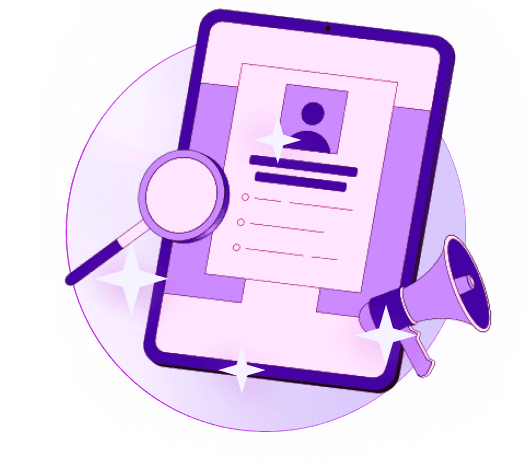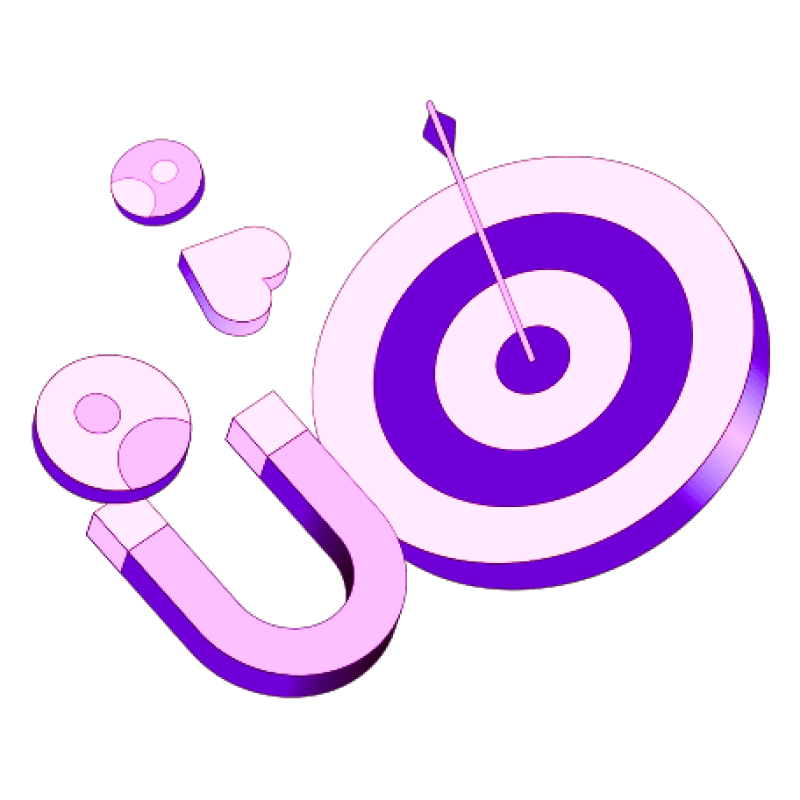Blogs
Articles


8 Best Data Enrichment Tools for Clean B2B Data in 2025 [Compared]
Companies lose around $15 million each year because of poor data enrichment tools and quality problems. I've watched sales teams lose about 10% of their leads every week just because they couldn't follow up properly with bad data.
We've taken a close look at the best data enrichment software options for 2025. This comparison will show you which data enrichment platforms give the best ROI for your needs.
You'll find everything you need to improve your CRM data enrichment process, boost your lead enrichment tools, or pick the right contact data enrichment services.
What’s the best data enrichment software?
I've tested dozens of options and picked the eight best data enrichment tools for B2B companies in 2025. These platforms excel at turning incomplete data into practical business intelligence.
The data enrichment software market has grown fast. Companies now spend $103,000 on average each year on data management solutions. This makes sense because organizations using quality data enrichment services see their lead conversion rates jump by 21%.
Here's what sets the best options apart from the rest:

The next sections break down each option so you can match their features with your organization's CRM data enrichment needs and current tech stack.
8 Best data enrichment software options for 2025
Persana

Y Combinator-backed Persana stands out among data enrichment companies by combining AI technology with data from 75+ sources to make prospecting easier. This newer entrant in the data enrichment software market has quickly earned recognition for its innovative B2B data approach.
Persana Key Features
The platform offers several unique capabilities that make it different from traditional data enrichment tools:
Waterfall Enrichment Technology: Gets detailed information from multiple providers through a single platform, which improves match rates substantially
Intent Signal Tracking: Tracks job changes, hiring patterns, funding rounds, and website visits to spot high-potential prospects
AI-Powered Personalization: Creates customized email and LinkedIn messages at scale users often mention this as their favorite feature
Quantum Agent Technology: Uses AI agents that qualify leads and update contact lists with tech stack data continuously
Chrome Extension: Makes LinkedIn prospecting easier by finding verified email addresses and creating personalized messages
Persana Pros and Cons
Pros:
Gets better match rates than Apollo and ZoomInfo combined
Sales professionals save 8-10 hours every week on prospecting
All paid plans include unlimited team members at no extra cost
Alerts arrive instantly when prospects change jobs
Merges naturally with major CRMs like Salesforce and HubSpot
Cons:
Learning the platform takes time
Some users find the login process unusual
Customer service documentation needs work
Lower-tier plans have limited integration options
Persana Pricing
Free: Simple features with 100 credits, no credit card needed
Starter: USD 68.00/month with 24,000 annual credits
Growth: USD 151.00/month includes 60,000 annual credits and extra integrations
Pro: USD 400.00/month with 216,000 annual credits and advanced webhook integrations
Enterprise: Custom pricing includes unlimited enrichments and premium features
Persana Best For
The platform works best for:
Sales teams targeting companies in growth mode with active hiring
Companies that want to cut their sales cycle time by up to 65%
Teams using event-driven prospecting based on triggers like new executive hires
Organizations looking for high-intent prospects through signal-based selling
Small teams needing simple lead enrichment tools who value guided setup
You can identify potential buyers before they reach the RFP stage, which proves especially valuable for complex solution sales. Visit Persana to learn how their waterfall enrichment technology can reshape your B2B data enrichment strategy.
Apollo.io

Apollo.io stands out as a leading player in the data enrichment software market with its complete sales intelligence and engagement platform. Users get access to a massive database of over 270 million contact points, making it a strong tool for B2B prospecting.
Apollo.io Key Features
Apollo's data enrichment tools shine with these notable features:
Extensive Database: Access to 210+ million contacts across 35+ million companies with 65+ filtering options for precise targeting
Waterfall Enrichment: Contact data gets better through multiple sources until verified information is found
CRM Integration: Updates records in Salesforce, HubSpot, and other major CRMs with immediate or scheduled updates
CSV Enrichment: Updates existing spreadsheet data with fresh contact information quickly
Data Health Center: Spots and fixes problems like missing emails, outdated information, and duplicate records
Engagement Suite: Handles email sequences, calls, and social interactions from one platform
Apollo really shines with its automatic data updates that keep information fresh. This helps solve the common problem of outdated data that many sales teams face.
Apollo.io Pros and Cons
Pros:
Affordable lead generation compared to competitors like ZoomInfo
User-friendly interface that's quick to learn
Complete outreach automation with email sequencing
Accurate contact data that's easy to filter
Chrome extension that blends with LinkedIn and Gmail
Cons:
Data accuracy problems with 30-45% reported inaccuracy in some cases
The core team doesn't deal very well with customer support
System bugs show up with occasional platform downtime
Credit system might lead to surprise costs
Limits on exporting large amounts of data
Apollo.io Pricing
Apollo.io comes with four pricing tiers. Each tier offers different levels of access to their B2B data enrichment features:

The platform uses credits for actions like viewing email addresses and phone numbers. Extra credits cost $0.20 each when you run out, with a minimum purchase of 250 monthly credits.
Despite mixed feedback about data accuracy, Apollo remains an attractive choice for teams looking for contact data enrichment. The platform costs much less than enterprise solutions while offering similar features.
ZoomInfo

ZoomInfo stands out as a premium data enrichment platform with powerful B2B intelligence capabilities. The company's database has grown over the years to include more than 320 million professional contacts and 100 million company profiles. North American markets remain their main focus.
ZoomInfo Key Features
ZoomInfo's data enrichment tools shine with these capabilities:
Complete Enrichment Options: Multiple enrichment approaches exist through scheduled, instant, CSV (up to 200,000 records), and custom data-as-a-service enrichment
Multi-Vendor Data Strategy: A user-friendly interface helps manage data needs from 60 vendors through a flexible, rules-based selection system
Advanced Data Management: The platform standardizes, removes duplicates, normalizes, segments, transforms, and maps leads to accounts
Waterfall Enrichment: The B2B database cleanses and enriches data with expandable automation
Intent Signal Tracking: The system spots potential buyers researching your product-related topics
ZoomInfo excels at automating lead enrichment and data hygiene tasks. This automation improves sales efficiency by a lot and cuts down manual work.
ZoomInfo Pros and Cons
Pros:
Rich database packed with detailed company and contact information
Seamless integration with Salesforce, HubSpot, and Microsoft ecosystem
Powerful intent data spots ready-to-buy prospects
Data accuracy maintained through regular updates
Advanced features help teams collaborate better
Cons:
New users need ongoing support due to complex learning curve
Data coverage nowhere near complete outside the US
Small organizations might struggle with high prices
Custom quotes make pricing structure unclear
Credit system might bring surprise costs
ZoomInfo Pricing
Unlike competitors with clear pricing, ZoomInfo works through custom quotes. Here are the 2025 pricing tiers from reliable sources:

The original price tag might look steep compared to other data enrichment solutions. Yet, the platform's complete data coverage and advanced features justify the cost. Yes, it is worth noting that the credit-based system uses one credit per exported record. This system makes budget planning crucial for potential users.
Enterprise-level organizations continue choosing ZoomInfo for complete B2B data enrichment solutions, despite its premium pricing. Companies should match these factors against their data needs and budget before picking this premium option.
Pipl

Pipl excels in identity verification with its massive database that contains over 3 billion identities from 150+ countries. The platform updates information from more than 100 billion identity elements. This makes it a powerful choice for companies that need detailed personal and professional data.
Pipl Key Features
Pipl's unique capabilities help it stand out from other data enrichment tools:
Complete Identity Resolution: Links scattered signals into unified profiles and connects consumer, social, and business data to create full identity views
Global Coverage: Works perfectly for international applications with data from 150+ countries
Real-Time Verification: Spots authentic identities from fraudulent ones by analyzing digital footprints
Pipl Search API: Gives developers easy access with structured JSON responses to automate verification processes
Search Insights Tool: Features an easy-to-use interface with advanced filters for manual investigations
Pipl's commitment to ethical data sourcing deserves mention. The platform maintains transparency about data sources and follows GDPR and CCPA regulations.
Pipl Pros and Cons
Pros:
Searches span multiple countries with extensive global reach
Places high priority on fraud prevention and detection
Creates complete profiles from minimal information
Delivers quality identity verification through multiple validation methods
Integrates smoothly with other platforms via API
Cons:
Uses static databases instead of live data
Costs more than similar competitors
Offers mostly annual plans with limited subscription options
Features focus mainly on identity verification and lead enrichment
Data coverage varies by geographic region
Pipl Pricing
Pipl's pricing structure varies according to different sources:
Features start at $0.10 (one-time) to $358.00 monthly
Yearly plans cost about $429.00
Enterprise deals range from $3,000-$130,000 per year
Enterprise clients pay around $58,000 yearly on average
Pipl serves organizations that need strong identity verification effectively. Crime investigation teams, fraud prevention units, and sales teams that require accurate contact verification find it particularly useful.
Lusha

Lusha stands out with its easy-to-use interface that gives users direct access to verified B2B contact information through a credit-based system. Sales teams at major companies like Google, Dropbox, and Uber love the platform. It achieves an impressive 95% deliverability rate.
Lusha Key Features
Lusha's data enrichment tools make the prospecting process simple:
Chrome Extension: Gets contact information instantly while browsing LinkedIn, company websites, or other online platforms
Advanced Search Filters: Lets users filter using 20+ criteria including industry, job title, and company size
Verified Contact Data: Gives access to email addresses and direct phone numbers through a seven-step verification process
Intent Signal Tracking: Notifies users about job changes and purchasing intent signals from potential prospects
CRM Integration: Combines smoothly with Salesforce, HubSpot, Zoho, and other major CRM platforms
CSV Enrichment: Updates existing spreadsheets with fresh contact information
Lusha Pros and Cons
Pros:
Quick to learn and simple to use
Connects directly to prospects with near-perfect deliverability
Works naturally with popular CRMs and sales tools
Updates data regularly to keep it accurate
Holds GDPR and CCPA certification for compliance
Cons:
Users need to watch their credit usage to avoid surprise costs
Small companies might have limited data coverage
Heavy users might find credit limits too tight
Phone numbers need many more credits than emails
Higher-tier plans lock some integrations
Lusha Pricing
Lusha uses a credit system where one credit reveals an email and phone numbers need 10 credits. Here are their pricing plans:

Marketing, sales, and recruiting teams that focus on US and European prospecting get the most value from Lusha. The platform shines at giving quick access to verified contact information. Teams that need accurate B2B data enrichment and value direct outreach will find it most useful.
Cognism

Cognism has become a leading B2B data enrichment platform for companies targeting EMEA markets. The 5-year old platform combines AI technology with human verification. It provides accurate contact information and intent data that helps sales teams find prospects who actively research solutions.
Cognism Key Features
Cognism's data enrichment tools excel at verification and compliance:
Diamond Data®: Phone-verified mobile numbers boost connect rates by 3x on average. Numbers get re-verified every 18 months
Prospector Tool: AI-powered search creates targeted lead lists based on firmographic, technographic, and intent data
European Coverage: The platform offers 180% more contacts in the UK and 250%+ more contacts in France and Germany than competitors
Intent Data: Bombora powers the system to identify companies that actively research relevant topics. Users can access over 11,000 intent subjects
Enrich Feature: The platform supports three data enrichment types instant, scheduled, and on-demand CSV enrichment—to keep database quality high
Cognism takes compliance seriously. The platform holds international certifications like ISO 27001, ISO 27701, and SOC 2 Type II. It checks data against 13 Do-Not-Call lists worldwide.
Cognism Pros and Cons
Pros:
Phone numbers are highly accurate with robust verification
The platform leads in European market coverage
Complete compliance with GDPR and CCPA regulations
Bombora partnership enables advanced intent data features
Customer service responds within 20 seconds on average
Cons:
Smaller teams might find the pricing expensive
We focused on European markets with less attention to US/APAC regions
The platform needs built-in outreach tools
Outbound campaigns require additional sales tools
Updates outside EMEA region are infrequent
Cognism Pricing
Cognism offers two main pricing tiers:

Users typically invest between USD 30,000.00 and USD 100,000.00 annually. The final cost depends on team size and specific requirements. Cognism works best for organizations with European prospects and an existing tech stack to manage their sales cycle.
Clay

Clay transforms data enrichment with its spreadsheet-like interface that connects to over 90 data sources. The platform works as an enrichable database, helping you build and filter targeted lists with precision.
Clay Key Features
Clay's exceptional data enrichment tools include:
Waterfall Enrichment: The system searches data providers one after another and stops when it finds information—you pay only for successful searches
Claygent AI Assistant: This AI tool researches companies and people by scraping web content to find specific details like certifications or podcast appearances
Pre-built Templates: Ready-made workflows help with CRM enrichment, TAM sourcing, and account scoring
Integration Ecosystem: The platform connects with 150+ providers and popular tools like Salesforce and HubSpot
Signal Tracking: You can track job changes, news, and social mentions to spot opportunities
Clay Pros and Cons
Pros:
The platform combines functionality from 50+ tools into one unified system
All plans include unlimited users no per-seat charges
Multiple validation methods ensure high-quality data
The system adapts to specific workflow needs
Cons:
Non-technical users face a "massive" learning curve
The credit system might lead to unexpected costs without proper management
Many columns can make the spreadsheet interface difficult to handle
The platform lacks collaboration features like commenting or version control
Clay Pricing
Clay uses a flexible credit-based system where different actions use varying numbers of credits:

Clay works best for teams that want to automate their prospecting research and personalize outreach at scale. My tests show that Clay is particularly valuable for organizations that need to make use of information from multiple sources to get applicable information.
Crunchbase

Crunchbase began its journey in 2007. The platform provides a comprehensive collection of startup and investor intelligence that enhances data enrichment for businesses of all sizes. The platform stands out by delivering specialized information about funding rounds, investment histories, and emerging companies.
Crunchbase Key Features
Real-time Data Enrichment: Updates information daily to keep it current
Startup Intelligence: Delivers unique insights to identify early-stage companies and potential investors
CRM Integration: Blends naturally with Salesforce, HubSpot, and other major platforms
Market Analysis Tools: Helps track industry trends and competitor growth
Advanced Search Filters: Finds companies through AI-driven recommendations
Crunchbase Pros and Cons
Pros:
Specialized startup and investor data updated daily
Accessible interface with clear navigation
Robust search filters that quickly find relevant prospects
Live updates on company growth and funding events
Cons:
Self-reported data might not always be accurate
Coverage outside the U.S. needs improvement
Enterprise plan users get exclusive API access
Small businesses might find the pricing steep
Crunchbase Pricing
Free Plan: Simple company profiles with basic features
Starter Plan: USD 29.00 per user/month with basic tracking
Pro Plan: USD 49.00-99.00 per user/month based on billing cycle
Enterprise Plan: Custom pricing includes CRM-enriched search, bulk exports, and API access
What is data enrichment in B2B?

B2B data enrichment turns raw business data into useful information. The process combines your existing information with third-party data from trusted external sources to expand your current database.
Companies that enrich their data learn more about their business landscape. They can make smarter decisions based on analytical insights. The process combines data from multiple sources - internal records, third-party providers, and public datasets. The combined data goes through cleaning processes to ensure accuracy.
Rich data provides key business advantages:
Targeted marketing campaigns customized for different customer segments
Improved customer experiences with individual-specific interactions
New market opportunities become visible
Increased efficiency with complete customer profiles
Better data quality that remains up-to-date
Enrichment sources add firmographic details like company size and revenue, demographic information such as job titles and seniority, technographic insights about tech stack, behavioral patterns, geographic data, and purchase intent signals.
B2B companies create complete customer profiles through proper data enrichment. This leads to personalized interactions that boost loyalty and revenue. Companies looking to build effective enrichment processes can use platforms like Persana. These platforms turn incomplete records into useful business intelligence.
How do I choose a data enrichment tool?
You need to think over your business needs carefully when picking the right data enrichment tool. Start by figuring out which data points matter most to your marketing campaigns and sales strategies. Do you need CEO phone numbers, technology usage data, or industry-specific information?
These key factors will help you assess potential tools:
Data availability: Look for a tool that gives you accurate information for areas and data points where you're missing details
Integration capabilities: Pick options that work well with your existing CRM and marketing platforms
Compliance features: Make sure the company gets its data ethically and follows regulations like GDPR to stay out of legal trouble
Verification methods: Choose tools that combine human verification with algorithms
Ease of use: A complex user interface can slow people down and need lots of training
Security safeguards: Get a full picture of the vendor's data security measures to keep your data safe
Data accuracy: Quality data helps you make better decisions
Customer support: Try out their support channels before you commit to make sure you'll get help when needed
Once you've narrowed it down to 2-3 platforms, book live demos with sales reps. Show up with specific questions like "How would your system help me accomplish X?"
Persana stands out as a great option that meets these criteria. It strikes the right balance between accuracy, integration, and value.
Conclusion
B2B companies need data enrichment tools to boost their sales and marketing results. We looked at eight powerful platforms that help solve data quality issues modern organizations face. Each platform comes with its own strengths based on your needs, budget and target markets.
Your specific business needs will determine the best data enrichment solution. Teams focused on European markets might find Cognism's coverage a great way to get results. Organizations that need complete identity verification could do better with Pipl's wide-ranging features. ZoomInfo stands as the enterprise go-to with its reliable feature set, but smaller teams might struggle with its premium pricing. Apollo.io makes sense for early-stage companies with tight budgets.
Poor data quality costs companies millions each year. The right enrichment platform delivers substantial returns on investment. Better data leads to higher conversion rates, more effective campaigns and faster sales cycles. All eight platforms show that keeping data fresh is vital since business information goes stale at about 30% every year.
Your ideal tool should nail data accuracy, integration options and compliance features while matching your budget and goals. The data points that matter most to your sales and marketing efforts should guide your choice - whether that's contact details, intent signals or company insights.
Top B2B organizations use data enrichment as a competitive edge to understand customers better. You can revolutionize your prospecting process and improve your sales results by visiting Persana. Their waterfall enrichment technology combines AI with data from 75+ sources.
Data quality is no longer optional - it's vital to survive in today's B2B market. The right enrichment tool helps create tailored customer experiences and targeted campaigns. Evidence-based decisions stimulate sustainable growth.
FAQ
What is data enrichment software?
Data enrichment software has platforms that improve and refine your existing datasets by adding valuable information from external sources. These tools work as databases that connect with your CRM and automatically fill in missing fields. They add vital data points to contact and company records from CEO email addresses to annual revenue figures. Many tools with data enrichment features are known as sales intelligence platforms or prospecting tools.
Why should you automate the data enrichment process?
Manual data enrichment takes too much time and effort. Most B2B companies automate this process to get several benefits:
Improved segmentation - Group customer data into similar categories to create individual-specific campaigns
Better outreach - Get a complete view of leads to craft targeted sales messages
Smarter lead qualification - Target high-value prospects matching your ideal customer profile
Intent recognition - Identify buying signals to seize timely opportunities
Lead revival - Find previously dropped leads that now fit your criteria
What types of data enrichment tools are there?
Data enrichment tools vary from complete sales platforms to specialized solutions. Some tools provide firmographic data (company details), while others focus on technographic information (tech stacks) or behavioral data enrichment (purchase patterns). Some tools excel at geographic enrichment (location data), demographic enrichment (income levels), or temporal enrichment (timestamps).
How data enrichment boosts your sales pipeline
Data enrichment reshapes your sales pipeline by delivering accurate, live information that enables useful decisions. Organizations using lead enrichment tools see an 11-30% increase in conversions. Enriched data cuts email bounce rates some companies achieve improvements up to 55%. Sales teams with enriched CRM data can customize their outreach based on each prospect's situation and stand out in a crowded market.


Create Your Free Persana Account Today
Join 5000+ GTM leaders who are using Persana for their outbound needs.
How Persana increases your sales results
One of the most effective ways to ensure sales cycle consistency is by using AI-driven automation. A solution like Persana, and its AI SDR - Nia, helps you streamline significant parts of your sales process, including prospecting, outreach personalization, and follow-up.

